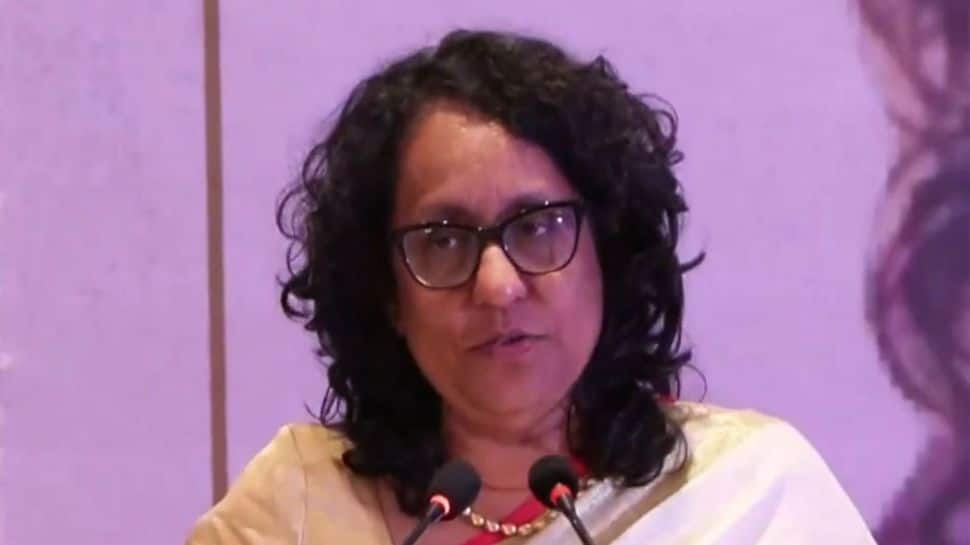Certainly! Here’s a clear, well-structured summary of the news article, approximately 1200 words in length:
---
**Sri Lanka’s Prime Minister Calls for Deeper India Ties, Emphasizes Maritime Cooperation and Economic Integration**
In a pivotal moment for South Asian diplomacy, Sri Lanka’s Prime Minister, Harini Amarasuriya, has made a strong case for enhancing bilateral ties with India, positioning Sri Lanka as a natural partner in India’s ambitious ‘Viksit Bharat’ (Developed India) vision. Her remarks, delivered during a civic reception hosted by the India Foundation, underscore the historical, economic, and strategic importance of the India-Sri Lanka relationship. Amarasuriya’s visit, which included high-level meetings with Indian Prime Minister Narendra Modi and External Affairs Minister S. Jaishankar, signals Sri Lanka’s intent to deepen cooperation across a spectrum of vital areas, from maritime security to economic integration and sustainable development.
**A Shared Vision for the Indian Ocean**
Amarasuriya opened her address by affirming Sri Lanka’s commitment to a free, open, and inclusive Indian Ocean—an increasingly critical region for global trade, security, and geopolitics. She emphasized that the security and prosperity of the Indian Ocean is a shared interest for both nations, given their geographic proximity and intertwined histories. This vision, she argued, must be underpinned by collaboration, mutual respect, and adherence to international law, ensuring that all countries in the region can pursue their legitimate interests in peace and prosperity.
The Prime Minister highlighted the unique geographic advantage Sri Lanka enjoys as India’s closest maritime neighbor, strategically situated along the busy east-west shipping lanes. She proposed that Sri Lanka’s efficient deep-water ports, already important gateways for Indian trade, could be further developed to serve as regional maritime hubs. By partnering more closely with India, Sri Lanka could enhance the efficiency and competitiveness of India’s export and import trade, supporting India’s emergence as a global manufacturing hub.
**Navigating Bilateral Challenges: The Fishermen Issue**
No diplomatic relationship is without its challenges, and Amarasuriya was candid in acknowledging one of the most persistent and sensitive points of tension between the two countries: the issue of fishermen crossing maritime boundaries. Indian fishermen, particularly those employing bottom trawling methods, have long operated in Sri Lankan waters. This practice has caused concern and hardship for Northern Sri Lankan fishermen, many of whom are rebuilding their livelihoods after years of internal conflict.
Amarasuriya stressed that the fishermen issue requires “sensitive handling and sustainable solutions,” as it affects the livelihoods of thousands on both sides and is deeply interwoven with community sentiments. She assured her audience that both governments are fully aware of the matter’s complexity and are engaged in ongoing dialogue to seek a fair and lasting resolution. Importantly, she noted that the maturity of the India-Sri Lanka relationship lies not in the absence of differences, but in the ability to manage them constructively, with empathy and respect for the needs of both peoples.
**Maritime Security and Regional Stability**
Beyond the fishermen dispute, Amarasuriya highlighted a broad array of maritime concerns that necessitate close collaboration between India and Sri Lanka. These include combating drug trafficking, piracy, and other transnational crimes, as well as fostering regional maritime cooperation and ensuring energy security. She pointed out that the Indian Ocean has become a hotspot for strategic competition, and that smaller nations like Sri Lanka have a vested interest in maintaining stability and ensuring that the region remains free from major power rivalries.
Energy security, particularly in the context of renewable energy development, is another emerging area of mutual interest. Amarasuriya indicated that Sri Lanka is keen to partner with India on renewable energy projects, seeing this as a way to both address climate change and strengthen economic ties. Such cooperation would not only benefit both countries, but also contribute to the broader goal of sustainable development in the region.
**Economic Partnership: Trade, Investment, and Value Chains**
A central theme of Amarasuriya’s speech was the pivotal role of economic integration in the future of India-Sri Lanka relations. She described India as a “crucial partner” in Sri Lanka’s ongoing economic recovery and development, particularly in the wake of the financial crisis that has gripped the island nation in recent years.
The India-Sri Lanka Free Trade Agreement (ISFTA), signed in 1998, was the first such deal for both countries and has since created substantial opportunities for bilateral trade. Am

